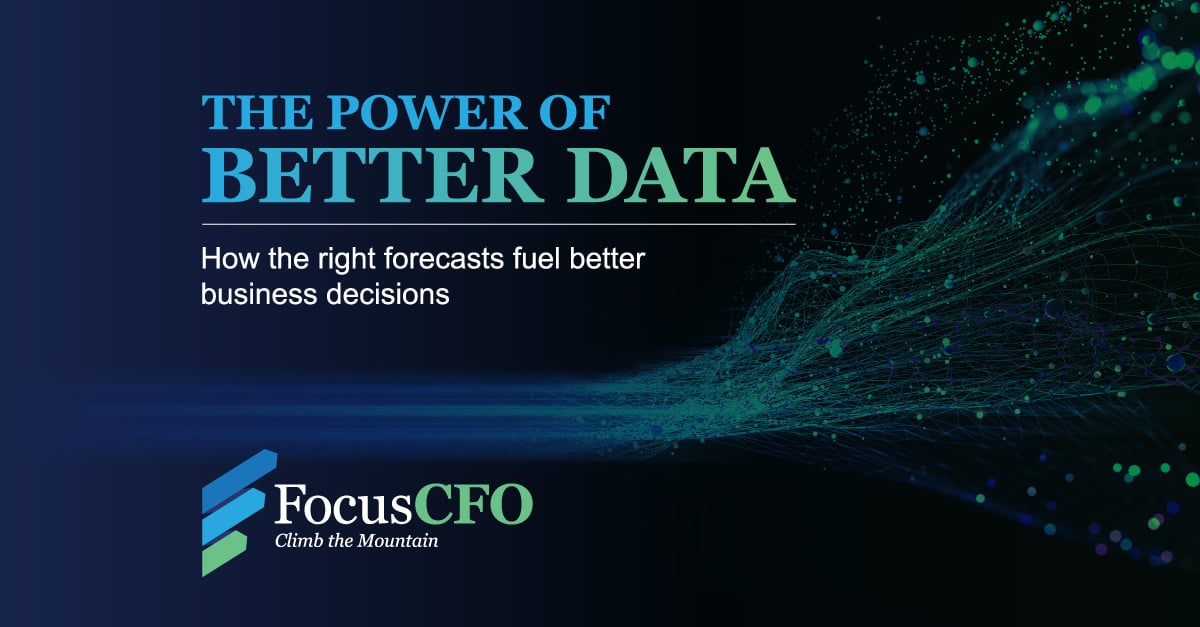As CFOs, accurate data is our stock and trade.
It is our job to communicate, to bring information to the companies we serve in a timely fashion so they can make decisions about the future of the business. The quality and integrity of that information determines whether those decisions propel a company forward, or hold it back.
The problem is, accurate data is not guaranteed. Sometimes the information companies use in their decision-making is flawed or incomplete. Other times, the information is clouded by bias, misperceptions, or fear.
To ensure companies use only the best data in their strategic decisions, a good CFO has two responsibilities: to sort the valuable data from the noise and to provide our executives with an informed perspective that can change the trajectory of the business.
The search for better data
Many business leaders rely on the news – local, national, global – as their main source of information, with good reason. They want to stay abreast of the latest changes in the financial markets, as well as national and international economic conditions and the political environments in which they do business. However, we often forget that the news isn’t always reliable, and sound bites don’t tell the whole story.
What does better data look like? A good CFO will provide you with monthly reports that check a few key boxes:
- The data is accurate, culled from trusted, reliable sources and experts.
- It is unbiased – politically neutral.
- It is comprehensive, offering information about multiple aspects of a given marketplace.
- It looks backward and forward, with insight into both past events and future possibilities.
As CFOs, it is our job to source this data on behalf of the businesses we serve. At FocusCFO, we use the ITR Economics Trends Report because it conforms to the highest standards. It is known for accuracy, unbiased perspective, and comprehensiveness. It also offers forward-looking predictions and guidance for how businesses can manage through various business cycles, whether we are navigating periods of recession, accelerating growth, slowing growth, or recovery. For those reasons and more, ITR Economics is our partner in generating data our clients can trust.
The value of a CFO
Of course, data alone does not give companies what they need to chart a path forward. For that, they need a good team with a CFO.
With reliable data in hand, CFOs get to work analyzing it and incorporating it into our recommendations and strategic guidance to support the forward movement of the business. When events in the economy spark fear or excitement, we can counteract the emotional highs and lows with factual information and informed perspective that lead to better decision-making long term. When executive leaders struggle to see the bigger picture, we can show them the world beyond just one piece of the available market. When business slows and recession looms, we help them stay positive and focused on preparing for the next cycle to roll through. These powerful and strategic conversations help business leaders understand where to invest, what markets to consider, how to scale the workforce, and how to plan for future success.
At FocusCFO, we use the ITR Economics Trends Report in much of our work with clients. Get data-driven guidance from a fractional CFO. Discover how FocusCFO can help you navigate economic cycles and plan for future success, contact us today!
Greg Gens is a Fractional CFO serving small and medium-sized businesses in Northeast Ohio.






